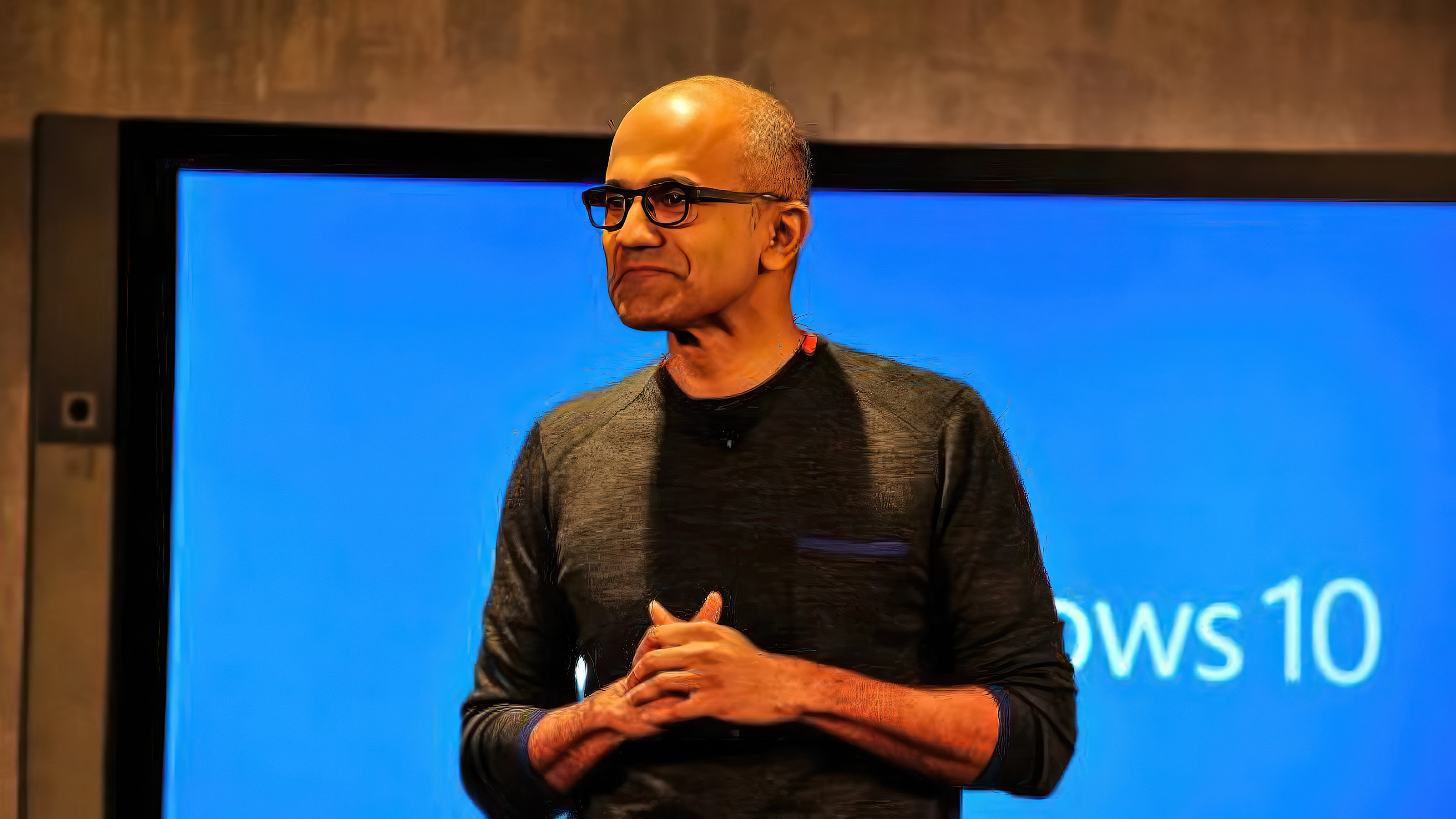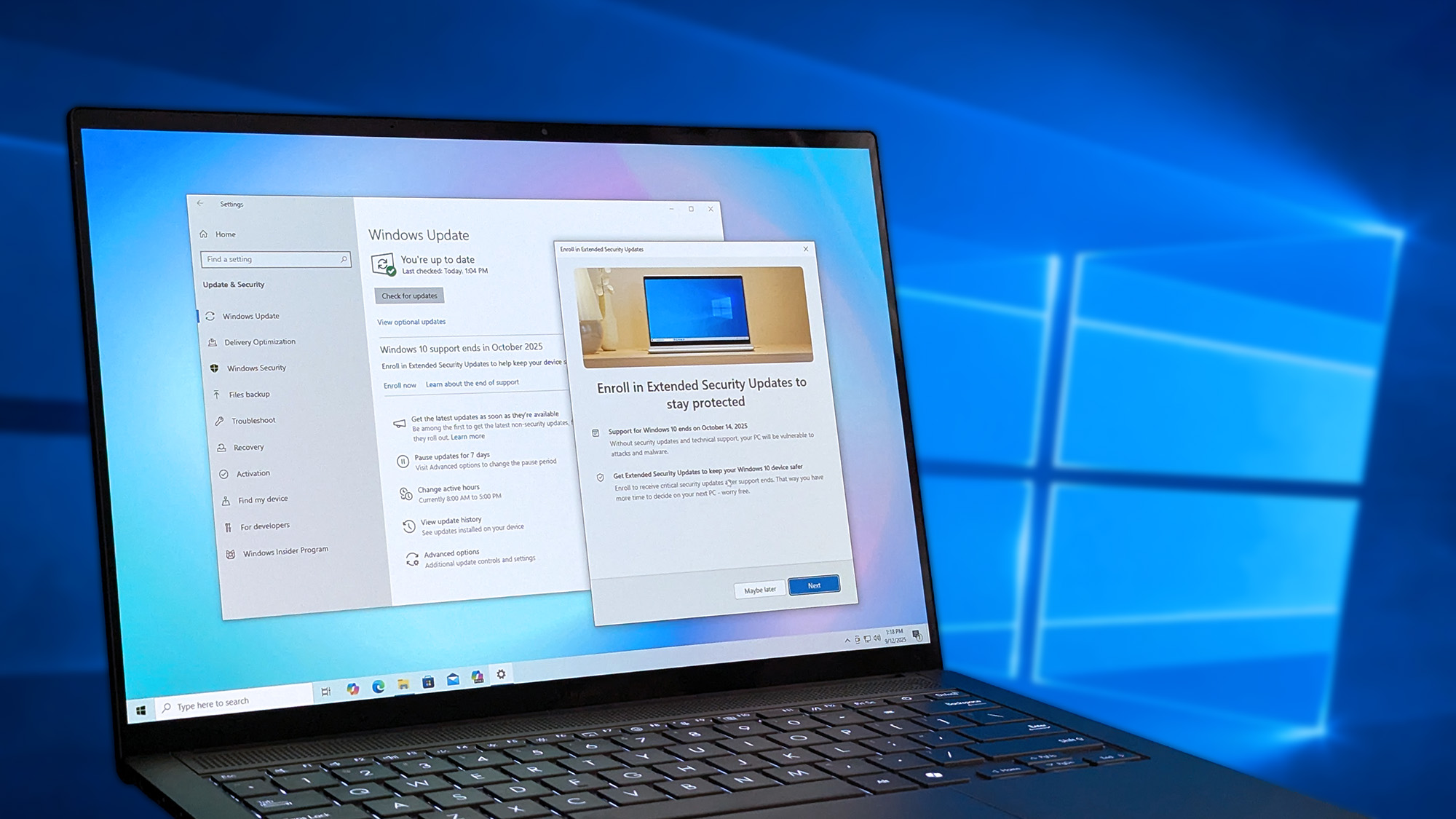Is Microsoft hypocritical? Consumer Reports asks CEO Satya Nadella to make Windows 10 support extension free for 400 million PCs
Windows 10's end-of-life status is looming, and Consumer Reports warns millions of PCs could be vulnerable.


All the latest news, reviews, and guides for Windows and Xbox diehards.
You are now subscribed
Your newsletter sign-up was successful
I'm no psychic, but it feels a bit late for Microsoft to reconsider its decision to cut support for Windows 10 on October 14, 2025, when complaints of unsupported PCs were heard months ago. As early as 2023, the Public Interest Research Group (PIRG) petitioned the tech giant to reconsider its decision, citing that it could lead to the single biggest jump in 'junked' computers ever.
While Microsoft seemingly turned a deaf ear to some of these complaints, it at least unveiled its Extended Security Updates (ESU) program for Windows 10 users who aren't able to upgrade to Windows 11 after support for the operating system ends.
Recently, and perhaps in a last-ditch effort to persuade Microsoft to extend support for Windows 10 beyond its cutoff date, Consumer Reports sent a letter to CEO Satya Nadella warning that the move will “strand millions of consumers” who cannot upgrade to Windows 11 due to the company’s strict minimum system requirements (via The Verge). The PIRG estimates that around 400 million PCs are unable to upgrade to Windows 11.
Microsoft's ESU program isn't enough
The report explains that the move will leave most Windows 10 users in a tough spot, with limited options: enrolling in Microsoft’s up-to-$30 ESU program for an extra year of support, purchasing new hardware (perhaps Copilot+ PCs), or continuing to run the OS on unsupported devices, a major security risk that could expose them to malicious attacks.
Consumer Reports admits that Microsoft informed consumers that it would cut support for Windows 10 when launching Windows 11 back in 2021. The tech giant attributed its decision to old hardware not meeting the system requirements to run Windows 11, including a Trusted Platform Module 2.0 (TPM) and a 64-bit processor.
However, Consumer Reports indicated that vendors continued selling hardware incapable of running Windows 11 through 2022 and 2023. Perhaps more concerningly, the report claims that around 46.2% of PCs worldwide were still running Windows 10 by August 2025, which translates to approximately 646.8 million PCs.
The decision to make Windows 11 incompatible with existing hardware, and to do so with only four years notice is incompatible with consumer expectations and Microsoft’s own history. Microsoft has long focused on backwards compatibility for Windows, ensuring it can run on older hardware. This means that consumers could expect to be able to run the latest version of Windows for at least a dozen years and maybe more. If you bought a PC with Windows 7 preinstalled in 2010, you were able to upgrade it to Windows 8 in 2012 and then Windows 10 in 2015, and many of those devices can still run Windows 10 in 2025.
Consumer Reports
Microsoft would clearly prefer Windows 10 users to upgrade to Windows 11, touting the operating system as the most secure OS, contributing "a 62% drop in security incidents and a 3x reported reduction in firmware attacks."
While Consumer Reports admits the effort is laudable, it calls Microsoft hypocritical for promoting Windows 11 as a cybersecurity upgrade while preparing to leave millions of PCs vulnerable to those very threats by ending support for Windows 10.
The report further argues that the available alternatives to extend Windows 10's lifeline aren't viable solutions. On one hand, Windows 10 users can pay up to $30 for an additional year of support to keep malicious cyber attacks at bay.
Microsoft also introduced a free option to enroll to its ESU program, but this will require you to use Microsoft products like Bing and Xbox to earn the required 1,000 Microsoft Rewards points, which could be an attempt to slightly bump market share over its rivals in the respective categories.
Instead, Consumer Reports is asking Microsoft to provide Windows 10 security updates to all users for free while it works on enticing more users to upgrade to Windows 11. Additionally, it's also requesting Microsoft to put elaborate measures in place to recycle the PCs that users will abandon when switching from Windows 10 to Windows 11.

Follow Windows Central on Google News to keep our latest news, insights, and features at the top of your feeds!

Kevin Okemwa is a seasoned tech journalist based in Nairobi, Kenya with lots of experience covering the latest trends and developments in the industry at Windows Central. With a passion for innovation and a keen eye for detail, he has written for leading publications such as OnMSFT, MakeUseOf, and Windows Report, providing insightful analysis and breaking news on everything revolving around the Microsoft ecosystem. While AFK and not busy following the ever-emerging trends in tech, you can find him exploring the world or listening to music.
You must confirm your public display name before commenting
Please logout and then login again, you will then be prompted to enter your display name.

